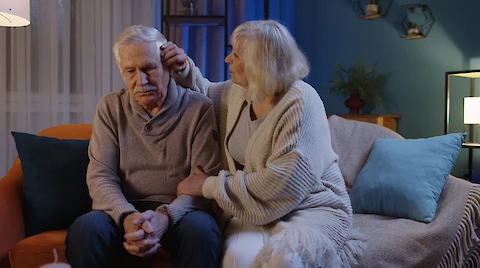
Are you or a loved one experiencing sundowning, a phenomenon often associated with Alzheimer's disease? Sundowning is a disorienting and sometimes scary experience, but there are steps you can take to minimize its effects. Here are some tips on how to avoid the triggers of sundowning and anxiety.
1. Establish a Consistent Bedtime Routine
One of the most effective ways to combat sundowning is to maintain a consistent bedtime routine. This includes going to bed and waking up at the same time every day, even on weekends. Limiting caffeine and sugar intake in the evening can also help facilitate a better night's sleep. Instead of watching TV or engaging in other stimulating activities before bedtime, try calming activities such as reading or listening to soft music.
2. Create a Calming and Familiar Environment
Your home environment plays a significant role in managing sundowning symptoms. Ensure your living space is well-lit, especially as evening approaches, to reduce disorientation and anxiety. Minimize noise and distractions by turning off devices that may cause disturbances. Surround yourself with familiar items, like photos of loved ones and cherished possessions, to create a sense of comfort and belonging.
3. Participate in Physical Activity During the Day
Staying physically active can help improve sleep quality and reduce the symptoms of sundowning. Engage in regular exercises, like walking or group exercise classes. Find hobbies that encourage movement, such as gardening or dancing. Limiting daytime naps can also help ensure better sleep at night.
Remember: Always consult with a doctor before beginning a new fitness routine.
4. Maintain a Healthy Diet
Eating well is essential for overall brain health and can help manage sundowning symptoms. Make it a point to eat regular meals and snacks throughout the day, and put brain-healthy foods such as leafy greens, berries, and nuts on the menu. Staying hydrated is also essential— drink water regularly and limit alcohol consumption.
5. Stay Socially Connected
Social engagement is vital for mental well-being and can help alleviate the symptoms of sundowning. Participate in group activities or clubs to stay connected with others. Make an effort to spend time with friends and family, sharing stories and enjoying each other's company. Volunteering or attending community events can also be a great way to stay socially active.
6. Reduce Stress and Anxiety
Managing stress and anxiety is crucial to avoid the triggers of sundowning and anxiety. Practice relaxation techniques like deep breathing or meditation, and keep up with daily routines. Don't forget to focus on engaging in enjoyable activities and hobbies that bring you joy and relaxation.
7. Monitor and Manage Medications
Taking medications consistently and as prescribed can also help manage sundowning symptoms. Make sure to take your medications at the same time each day—this helps ensure they work effectively. If you experience side effects or have concerns about your medications, consult your healthcare provider. Pill organizers or medication reminders can be helpful tools to ensure you stay on track.
8. Seek Professional Help When Needed
It's okay to ask for help. Doing so can help you continue to live at home and may preserve your overall independence. Recognize when additional support is necessary, such as in-home care, respite care, or other interventions. Consult with your healthcare provider about potential treatments or strategies for managing sundowning more effectively.
Rely on Senior Helpers
If you’re in Beaverton, King City, Hillsboro, Wilsonville, Tualatin, or Canby areas and want to learn more about how to avoid the triggers of sundowning and anxiety, Senior Helpers Beaverton is here to help. Our compassionate team is dedicated to providing exceptional in-home care tailored to your unique needs. Contact us today to learn more about our services and how we can support you in your home environment.